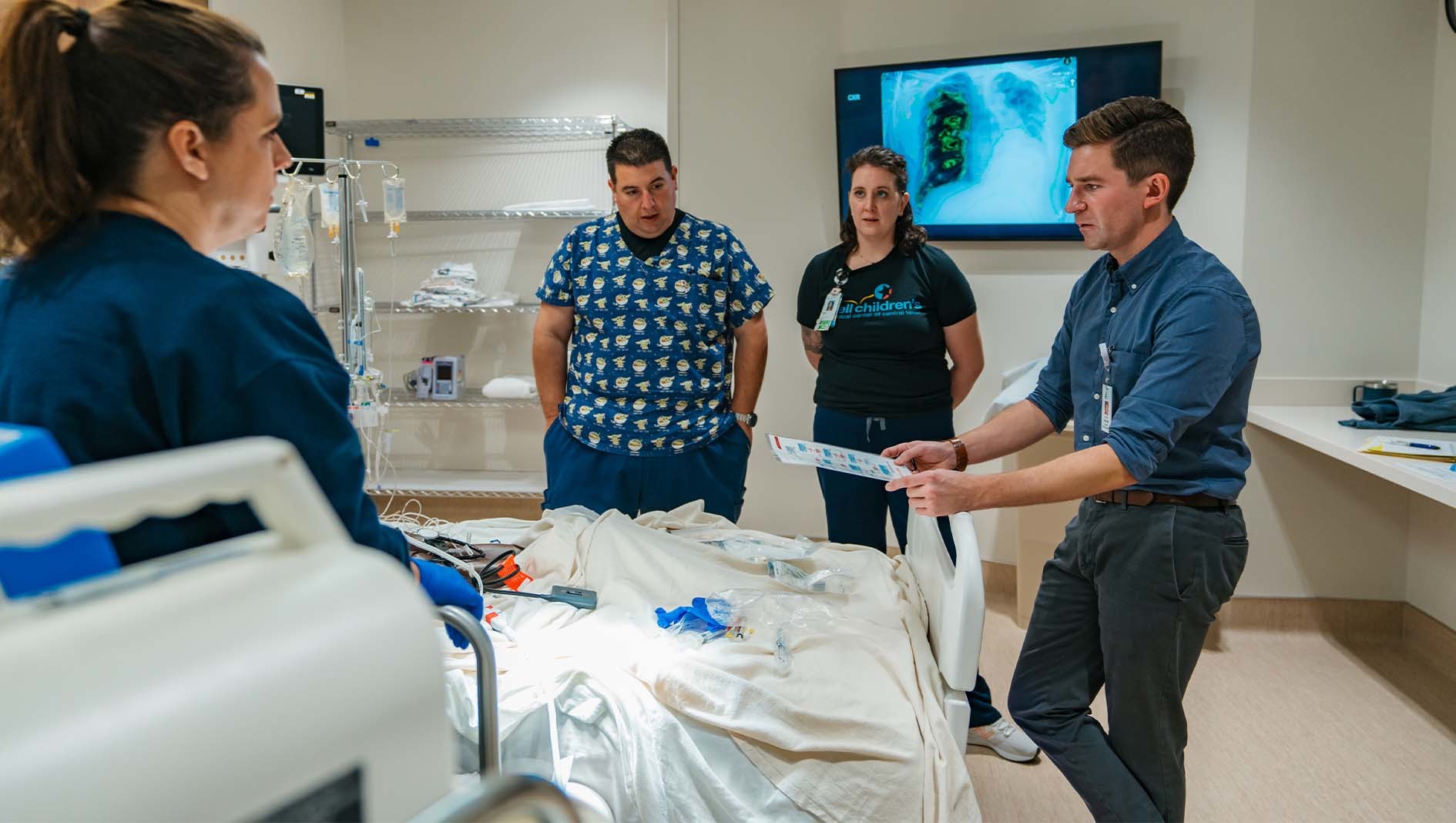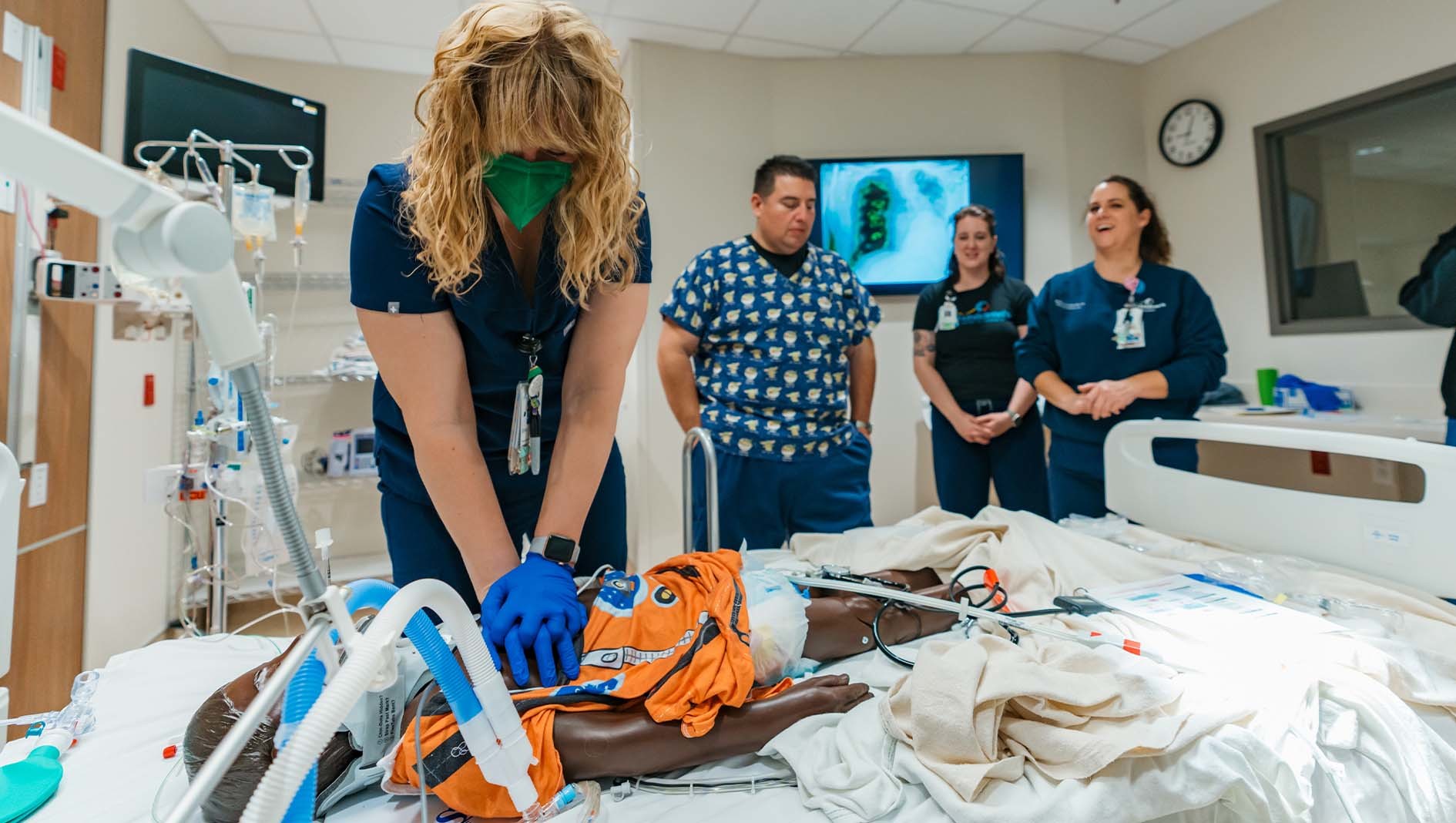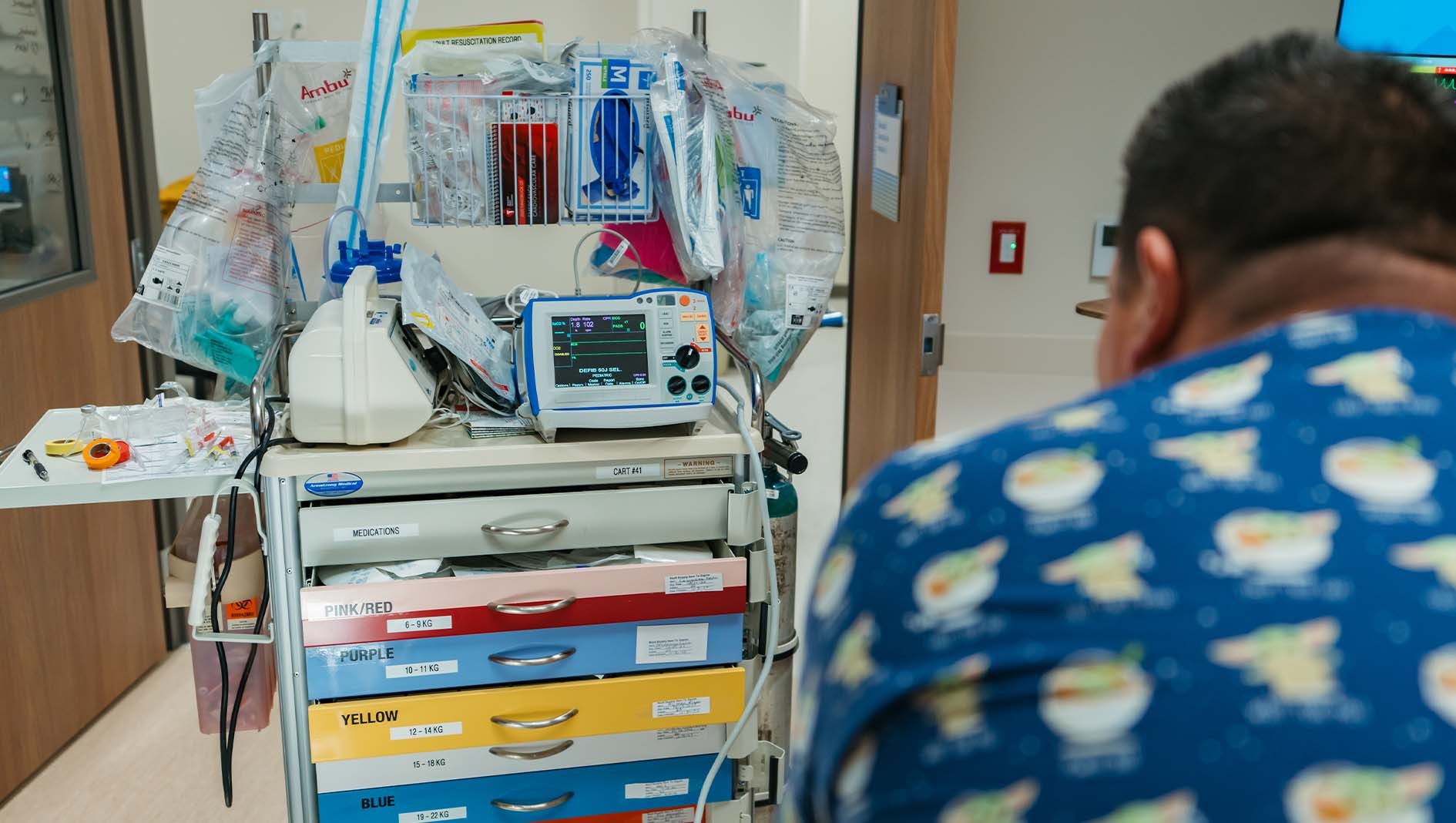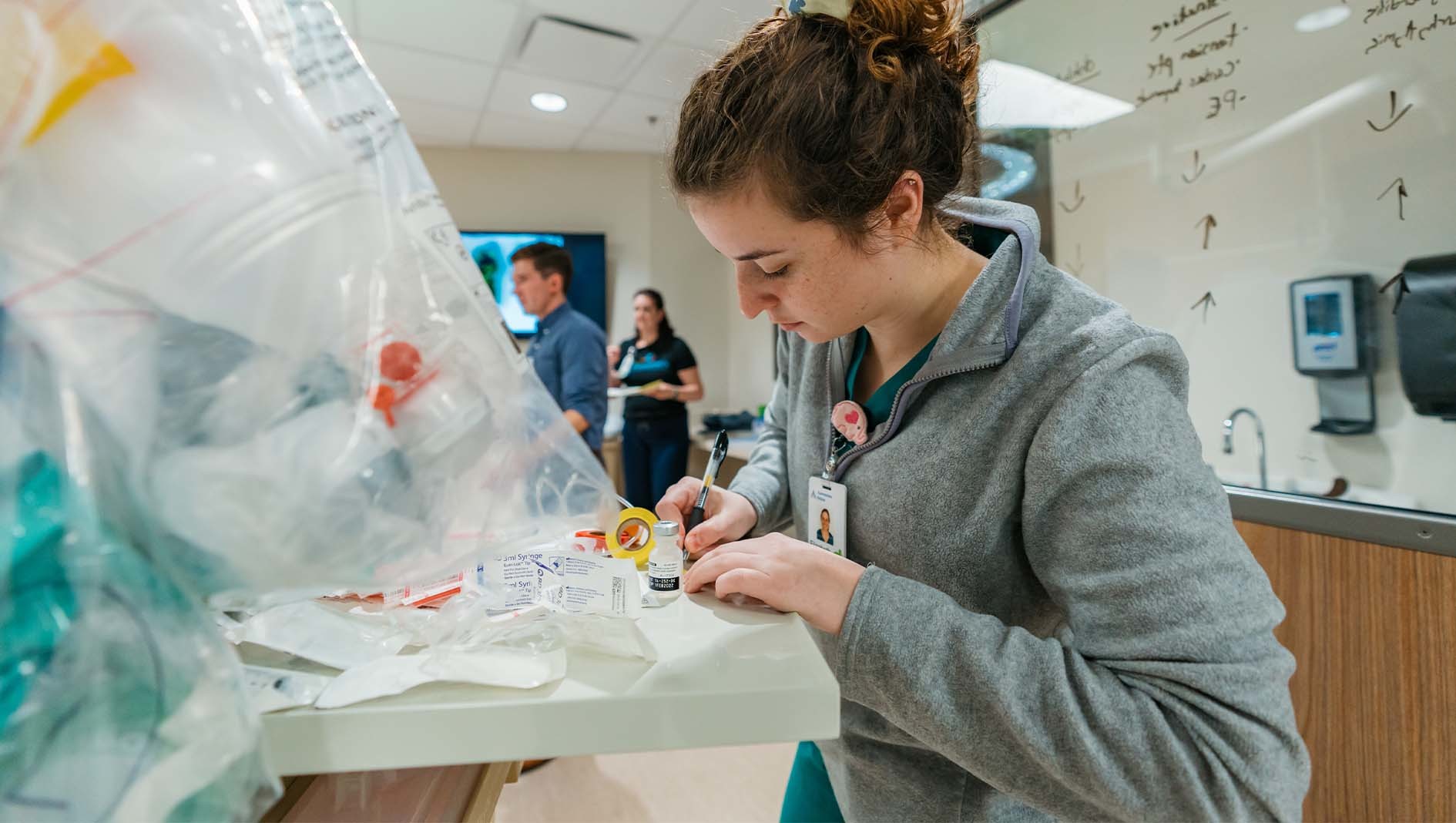A Partnership With Dell Children’s to Improve Care
The Simulation Center at Dell Children’s Medical Center — a partnership between Dell Medical School’s Department of Pediatrics and Dell Children’s Medical Center of Central Texas — aims to improve the delivery of care to patients and communities through innovative, immersive simulation that optimizes team performance and empowers clinicians, teachers, learners and researchers to achieve medical excellence.
The simulation center provides learnings opportunities to all disciplines and practitioner populations seeking to improve patient care for pediatric patients in Central Texas. The center also offers interdisciplinary simulation-based learning for medical students and physicians in training at Dell Med.
Using cutting-edge technology and offerings, the center strives to positively impact patient outcomes, quality of care and medical education. Through its state-of-the-art capabilities, the center enhances patient safety by training health care professionals in teamwork, interdisciplinary collaboration and clinical competence.
The vision of the Simulation Center at Dell Children’s is to advance practice and discovery in health care safety, quality and education, all while becoming global leader in medical simulation.
Areas of Focus
The simulation center provides access to high-fidelity simulation equipment and task trainers in a realistic health care environment to help learners develop competency in teamwork dynamics and the skills necessary for delivering high-quality pediatric care.
The simulation center strives to develop research that improves simulation training, clinician education and patient outcomes. The center aims to participate in extensive and collaborative research done within both Dell Children’s and the greater Central Texas community.
The center holds quarterly journals clubs and research conferences to discuss ongoing projects and pioneering research in the field of health care simulation.
The simulation center trains pediatric health care professionals to react and respond to high-risk pediatric scenarios in a lifelike simulated environment, helping to minimize risk to patients in real-life situations.
With simulated training, the center is able to identify opportunities for improvement in health care communication and operational systems.
The simulation center’s facilitators engage with the community by providing simulation opportunities to outpatient clinics, emergency departments, and transport and EMS services — all to help train providers in delivering high-quality pediatric care.
The simulation center offers clinical professionals the opportunity to enhance their education by participating in the Simulation Facilitator Course. The course provides essential skills needed to develop simulation curricula and effectively facilitate simulation scenarios.
Simulation Services
Specialty areas within the Simulation Center at Dell Children’s include general pediatrics, pediatric cardiology, pediatric critical care, pediatric emergency care, routine and high-risk obstetric care, neonatology, transport medicine, and quality and safety.
Immersive, High-Fidelity Training
The simulation center is equipped with more than a dozen full-body, high-technology manikins, ranging in age from infant to adult. High-fidelity training environments include an emergency department room, an intensive care room, and an operating and trauma suite.
The center’s training rooms are large enough to simulate full resuscitation events, and observation control rooms come equipped with two-way audio communication. The training rooms also accommodate mobile equipment such as crash carts, ventilators, intubation scopes and more.
Communication equipment includes a large wall monitor for image display and multiple ceiling-mounted pan-tilt-zoom cameras for video-assisted debriefing.
Task Training
The simulation center’s range of available task trainers allow practitioners to gain hands-on skills and build competency in the following functions:
- IV placement.
- Arterial line placement.
- Intraosseous line placement.
- Central line placement.
- Endotracheal intubation.
- Chest tube placement.
- Bag-mask ventilation.
- Lumbar puncture.
- Sterile technique.
- Point-of-care ultrasound use.
Virtual Reality Simulation
The simulation center’s virtual reality point-of-care ultrasound trainers allow users to practice image recognition, transducer placement and scenario integration.
Standardized Patients
Standardized patients are specifically trained to portray the roles of patients and family members. This method of training provides learners with experience in history gathering and physical examination in addition to developing communication skills in a non-threatening environment.
In Situ Simulations
The simulation center provides in situ simulations (simulated scenarios in real clinical environments) in the greater Austin area, bringing simulation-based learning directly to health care providers in their regular clinical practice environment.
Connect & Learn More
To engage with the Simulation Center at Dell Children’s or to learn more about its offerings, submit a contact form, or email the team.



